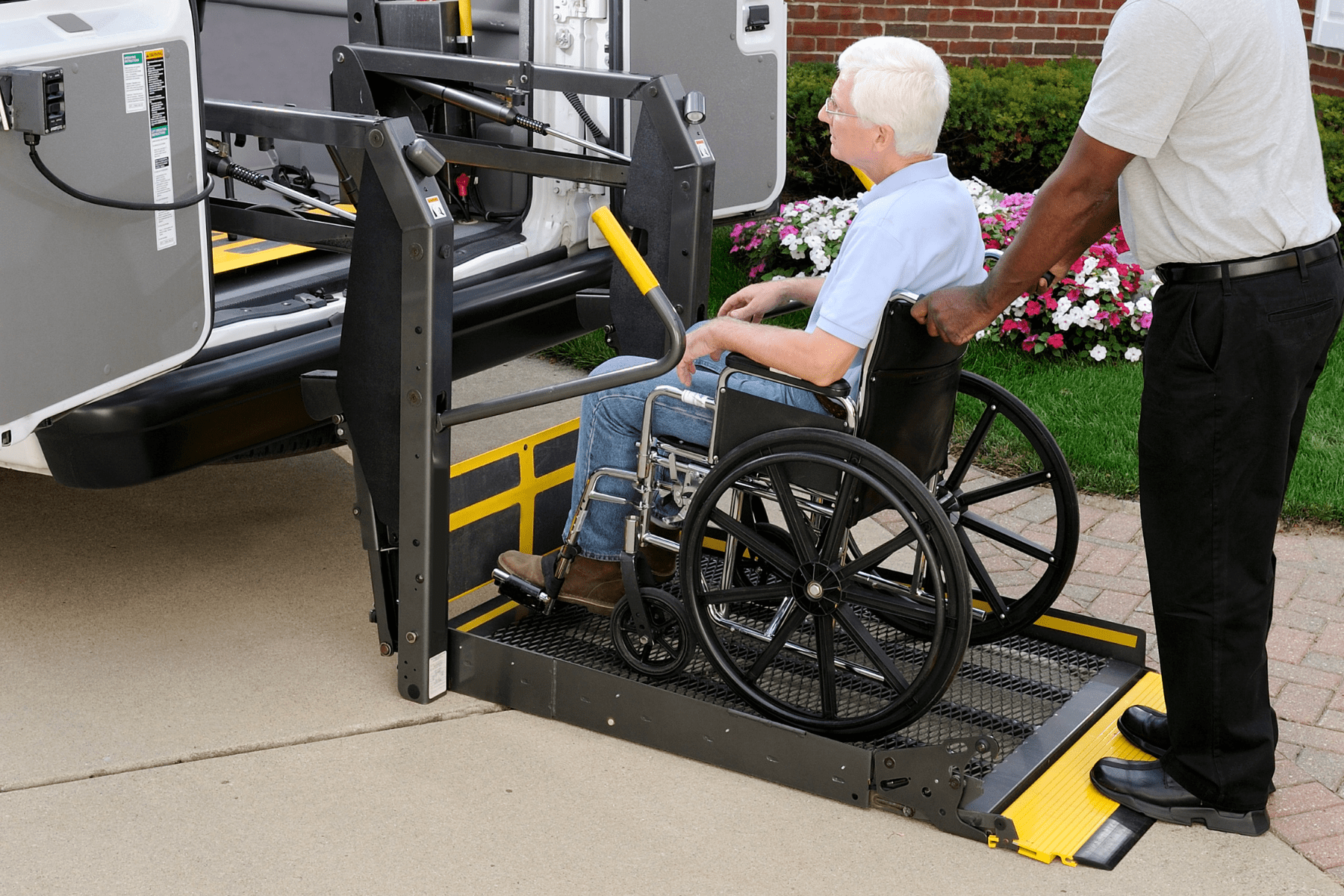Benefits of Medical Transportation
How Woodland Hills Medical Transportation and others alike can help you out
The Benefits of Medical Transport: Enhancing Healthcare Accessibility and Outcomes
In today's fast-paced world, timely access to medical care is crucial for maintaining health and well-being. Medical transport services, ranging from non-emergency patient transport to urgent air ambulance services, play a vital role in ensuring that patients receive the care they need when they need it. These services not only save lives but also significantly enhance the quality of healthcare by improving accessibility, reducing stress for patients and their families, and optimizing healthcare resources. This blog explores the myriad benefits of medical transport and underscores its importance in the modern healthcare landscape.
1. Timely Access to Healthcare
One of the most significant benefits of medical transport is its ability to provide timely access to healthcare services. For patients with chronic illnesses, disabilities, or those recovering from surgery, getting to medical appointments can be challenging. Non-emergency medical transport (NEMT) services ensure that these patients reach their appointments on time, reducing the risk of complications due to missed or delayed care.
In emergency situations, rapid medical transport is critical. Ambulances and air ambulances equipped with advanced life-support systems can swiftly transport patients to the nearest hospital, significantly increasing the chances of survival and recovery. For instance, in cases of heart attacks or strokes, every minute counts, and the quick response of medical transport can be the difference between life and death.
2. Reduced Stress and Improved Comfort
Medical transport services are designed with patient comfort in mind. Non-emergency medical transport vehicles are equipped with comfortable seating, climate control, and specialized equipment to accommodate various medical needs. This is especially beneficial for patients who require wheelchair access or those who need to be transported while lying down.
For patients and their families, the convenience of medical transport reduces the stress associated with arranging transportation. Family members can focus on providing emotional support rather than worrying about logistics. This peace of mind is invaluable, particularly for those dealing with long-term illnesses or complex medical conditions.
3. Enhanced Safety
Safety is a paramount concern in medical transport. Professional medical transport providers employ trained personnel who can handle medical emergencies and provide necessary care en route. This is particularly important for patients with conditions that might deteriorate during transit, such as respiratory issues or unstable cardiac conditions.
Medical transport vehicles are also equipped with the necessary medical equipment and supplies to manage a variety of medical situations. This ensures that patients receive continuous care from the moment they leave their location until they arrive at the healthcare facility.
4. Cost-Effective Solutions
Medical transport services can be a cost-effective solution for both patients and healthcare providers. For patients, using a medical transport service can be more economical than relying on personal vehicles or traditional taxis, especially when considering the potential costs of missed appointments or delayed care.
For healthcare providers, medical transport services help reduce the burden on emergency departments. By providing appropriate transportation for non-emergency cases, hospitals can ensure that emergency resources are reserved for those who truly need them. This can lead to more efficient use of hospital resources and potentially lower healthcare costs overall.
5. Improved Healthcare Outcomes
Timely and reliable access to medical care is directly linked to improved health outcomes. Patients who regularly attend their medical appointments are more likely to manage their conditions effectively, adhere to treatment plans, and avoid complications. Medical transport services play a crucial role in facilitating this continuity of care.
For patients with chronic conditions such as diabetes, heart disease, or kidney disease, regular monitoring and follow-up appointments are essential. Medical transport ensures that these patients can maintain their healthcare routines, leading to better management of their conditions and improved quality of life.
6. Support for Rural and Underserved Communities
In rural and underserved communities, access to healthcare facilities can be particularly challenging due to distance and lack of transportation options. Medical transport services bridge this gap, ensuring that patients in these areas can access the medical care they need.
By providing reliable transportation, medical transport services help reduce health disparities and promote equity in healthcare access. This is especially important for vulnerable populations who might otherwise face significant barriers to receiving care.
7. Specialized Transport for Specific Needs
Medical transport services are not one-size-fits-all; they can be tailored to meet the specific needs of different patients. For example, neonatal transport services provide specialized care for premature infants who need to be transferred to a neonatal intensive care unit (NICU). Similarly, bariatric transport services cater to the needs of obese patients, ensuring their safety and comfort during transit.
These specialized services ensure that all patients, regardless of their unique needs, can access the appropriate level of care. This customization enhances the overall effectiveness of the healthcare system and ensures that no patient is left behind.
8. Environmental Benefits
While not immediately obvious, medical transport services can also have environmental benefits. By consolidating multiple patients into a single vehicle for non-emergency transport, these services can reduce the number of individual car trips, leading to lower emissions and decreased traffic congestion. This contributes to a more sustainable and environmentally friendly healthcare system.
9. Integration with Healthcare Systems
Modern medical transport services are increasingly integrated with healthcare systems, allowing for better coordination of care. Advanced scheduling systems, electronic health records, and real-time tracking ensure that healthcare providers are informed about the patient's status and can prepare accordingly.
This integration enhances the efficiency of the healthcare system, reduces waiting times, and ensures that patients receive seamless care from transport to treatment. It also facilitates better communication between different healthcare providers, leading to more comprehensive and coordinated care plans.
Medical transport services like Woodland Hills Medical Transport are a vital component of the healthcare system, providing numerous benefits that enhance patient care and optimize healthcare resources. From ensuring timely access to medical appointments to reducing stress and improving safety, these services play a crucial role in supporting patients' health and well-being. By bridging gaps in healthcare access, particularly in rural and underserved communities, medical transport services promote equity and improve health outcomes. As the healthcare landscape continues to evolve, the importance of medical transport will only grow, underscoring its essential role in delivering high-quality, accessible healthcare for all.





